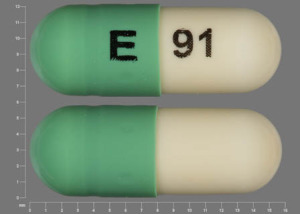Fluoxetine Interactions
There are 684 drugs known to interact with fluoxetine, along with 12 disease interactions, and 1 alcohol/food interaction. Of the total drug interactions, 166 are major, 496 are moderate, and 22 are minor.
- View all 684 medications that may interact with fluoxetine
- View fluoxetine alcohol/food interactions (1)
- View fluoxetine disease interactions (12)
Most frequently checked interactions
View interaction reports for fluoxetine and the medicines listed below.
- Abilify (aripiprazole)
- Adderall (amphetamine / dextroamphetamine)
- Adderall XR (amphetamine / dextroamphetamine)
- Aspirin Low Strength (aspirin)
- Benadryl (diphenhydramine)
- CoQ10 (ubiquinone)
- Cymbalta (duloxetine)
- Eliquis (apixaban)
- Fish Oil (omega-3 polyunsaturated fatty acids)
- Flonase (fluticasone nasal)
- Iron Sulfate (ferrous sulfate)
- Lyrica (pregabalin)
- Metoprolol Succinate ER (metoprolol)
- Metoprolol Tartrate (metoprolol)
- Nexium (esomeprazole)
- Norco (acetaminophen / hydrocodone)
- ProAir HFA (albuterol)
- Seroquel (quetiapine)
- Singulair (montelukast)
- Synthroid (levothyroxine)
- Tylenol (acetaminophen)
- Vitamin B12 (cyanocobalamin)
- Vitamin C (ascorbic acid)
- Vitamin D2 (ergocalciferol)
- Vitamin D3 (cholecalciferol)
- Vyvanse (lisdexamfetamine)
- Wellbutrin (bupropion)
- Wellbutrin XL (bupropion)
- Xanax (alprazolam)
- Zyrtec (cetirizine)
Fluoxetine alcohol/food interactions
There is 1 alcohol/food interaction with fluoxetine.
Fluoxetine disease interactions
There are 12 disease interactions with fluoxetine which include:
- depression
- diabetes
- hyponatremia
- glaucoma
- liver disease
- mania
- platelet function
- QT prolongation
- seizure disorders
- SIADH
- renal dysfunction
- weight loss
More about fluoxetine
- fluoxetine consumer information
- Compare alternatives
- Pricing & coupons
- Reviews (2,253)
- Drug images
- Side effects
- Dosage information
- Patient tips
- During pregnancy
- Support group
- Drug class: selective serotonin reuptake inhibitors
- Breastfeeding
Related treatment guides
Drug Interaction Classification
| Highly clinically significant. Avoid combinations; the risk of the interaction outweighs the benefit. | |
| Moderately clinically significant. Usually avoid combinations; use it only under special circumstances. | |
| Minimally clinically significant. Minimize risk; assess risk and consider an alternative drug, take steps to circumvent the interaction risk and/or institute a monitoring plan. | |
| No interaction information available. |
See also:
Further information
Always consult your healthcare provider to ensure the information displayed on this page applies to your personal circumstances.


